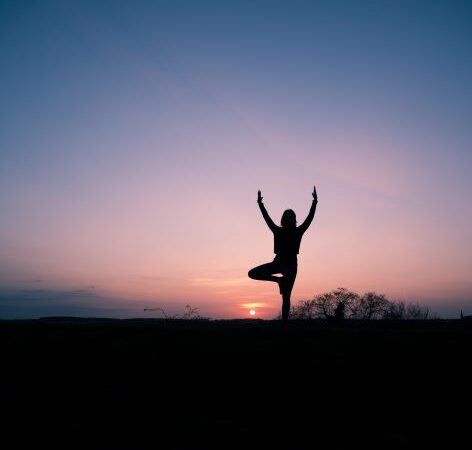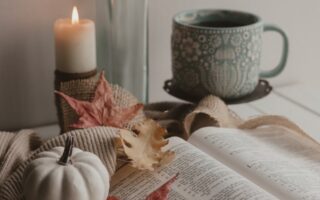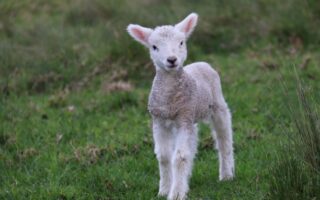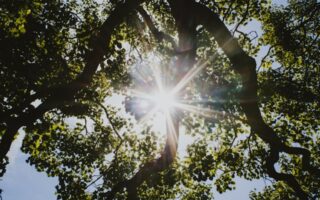I enjoy yoga and have a consistent home yoga practice. The practice of yoga reminds me of the gymnastics training that lies in my personal history. I draw from the foundation of strength and flexibility gymnastics training provided, but I also encounter wounds from that same training. One wound I am consistently aware of is an injury to my left ankle that was years in the making. This injury is particularly noticeable when practicing balancing postures on one foot. The foundation of my right ankle is strong, steady, and reliable. Balancing on my right foot feels comfortable and light but when I switch to the left side everything changes. My left ankle is weak and wobbly. Balancing on my left foot is not comfortable or light. It requires me to concentrate on lifting up from my left hip, tightening my abdominal muscles, keeping a sharp focal point, and having perfect alignment. Even when I do all these things, my ankle wobbles continually back and forth. Years of yoga practice has not changed this. The ankle is permanently damaged and is a weakness I will never overcome.
Reflection on this physical wound provides a window to see more clearly and understand more deeply emotional wounds that plague me. Like my wounded ankle, some of these emotional wounds were years in the making and have left me with some weaknesses I will never overcome. Yet, living with these weaknesses has also caused me to wrestle in darkness and find hidden treasure there.
Genesis 32 tells the story of Jacob wrestling in the dark. The chapter opens with Jacob’s anxiety about meeting his brother Esau after years of living apart. Through duplicity, Jacob manipulated Esau, taking from Esau both the inheritance and blessing due to him. Jacob is worried about how Esau will receive him and is preparing for the worst. After securing his family and possessions, Jacob is left alone in the dark near the river Jabbok. He encounters a mysterious presence and wrestles fiercely with this presence through the night. The identity of this presence is left intentionally ambiguous by the biblical writers. It is unclear if the presence is a friend or an enemy, a physical presence or Jacob’s inner demons. The presence is described as a man in Genesis (32:26) but as an angel when the story is recounted in Hosea (12:5). Though Genesis identifies the presence as a man, the man gives Jacob a new name, a task that is reserved only for God in other biblical stories. The ambiguity in identifying who Jacob meets preserves both the intimacy and mysterious transcendence of the presence Jacob encounters.
The name the man gives to Jacob is significant. He says,
You shall no longer be named Jacob, but Israel, because you have contended with divine and human beings and have prevailed.
Genesis 32:29
Jacob names the place of this encounter Peniel and gives this reason for the name,
Because I have seen God face to face, yet my life has been spared.
Genesis 32:31
Jacob leaves this encounter wounded. He walks with a limp for the rest of his life. The encounter has left him with a permanent weakness, a wound that becomes a way to remember this significant, personal, identity shaping encounter.
That God is involved in Jacob’s mysterious encounter is clear from both the name given to Jacob and Jacob’s naming of the place. It is an encounter that happens to Jacob while he is by himself, in the dark, wrestling with his past, worried about his future. It is an encounter that involves the grittiness of his life, his mistakes, his hopes, his duplicity, his goodness, his faith, and his doubts, all of him. Every aspect of his life is involved in this encounter and is the ground for meeting God.
This is true for all of us. We don’t encounter God only in pristine moments of prayer in holy places, we encounter God amid the turmoil, trials, and sufferings of our lives. Our wounds tell the story of our personal histories and shape our identities. Sometimes our wounds are so deep they are permanent aspects of our identity and will never fully heal. We can never be sure if our wounds are our friends or our enemies (can we learn to befriend them even when they feel like enemies?), but we can be sure we have met God in and through the struggles that have wounded us. If we recognize our wounds as our meeting ground with God, we might notice how these wounds have helped us to reach for and develop compensating strengths. We might find within our wounds the capacity to endure when life becomes difficult. We might find within our wounds a fierce compassion that allows us to love openly even when it hurts. We might find within our wounds our most personal, identity shaping connection to God. We might find within our wounds the place we meet God face to face and are forever changed by the encounter.














